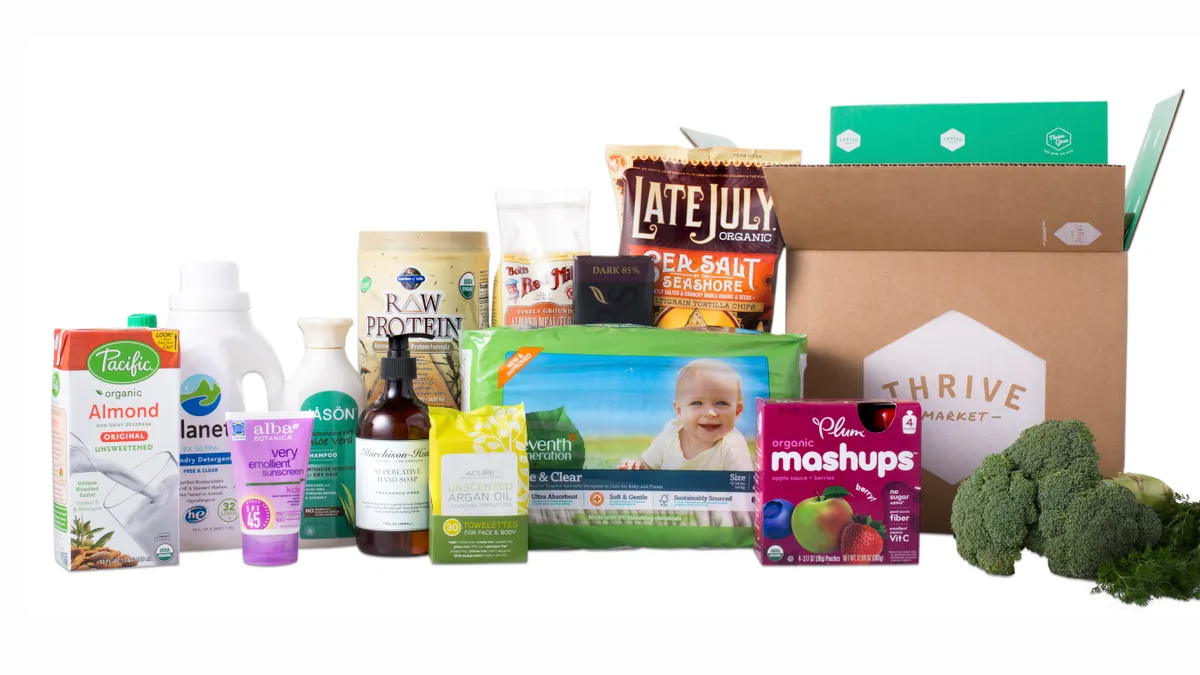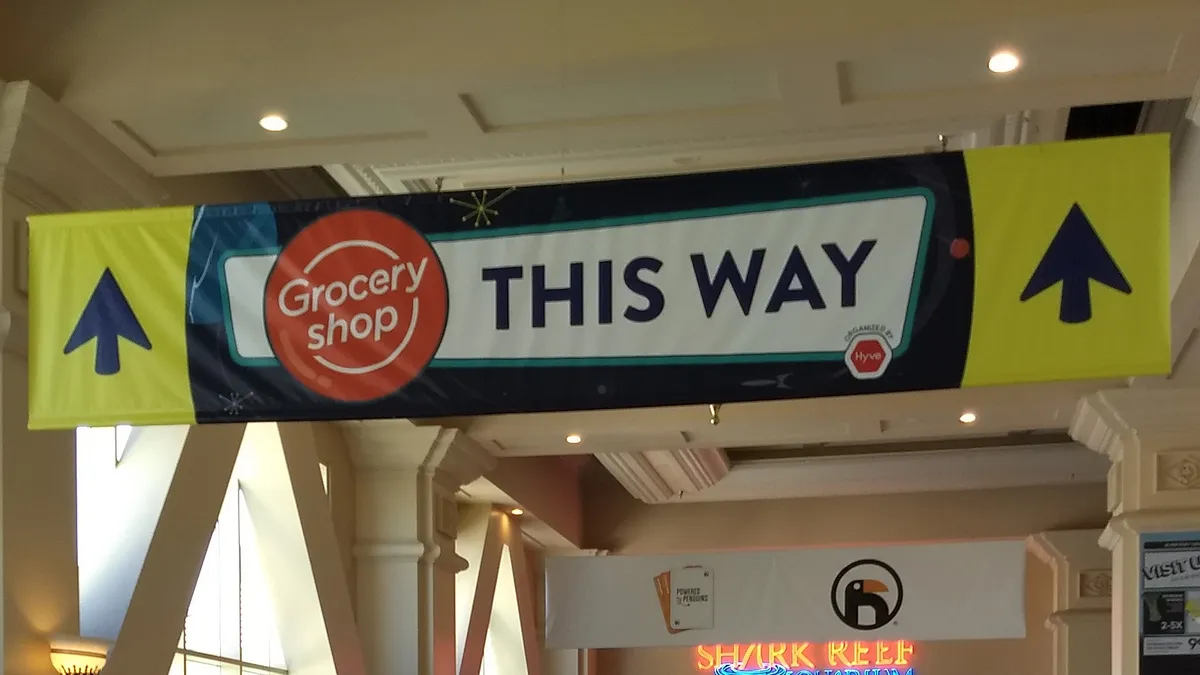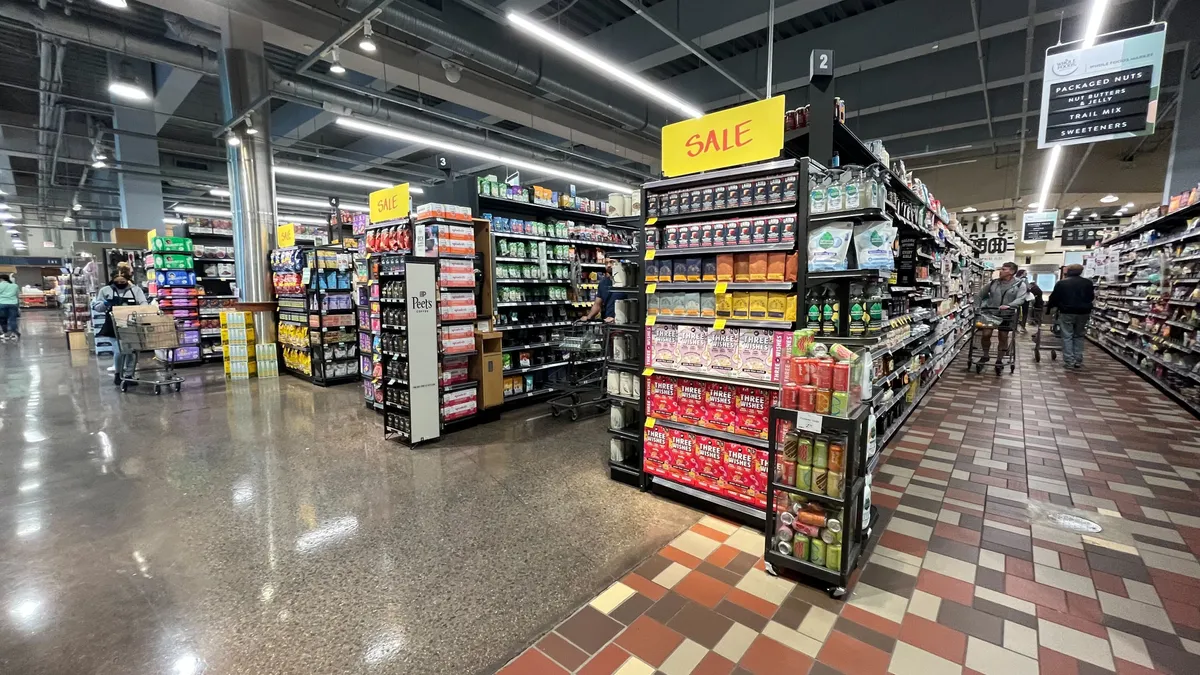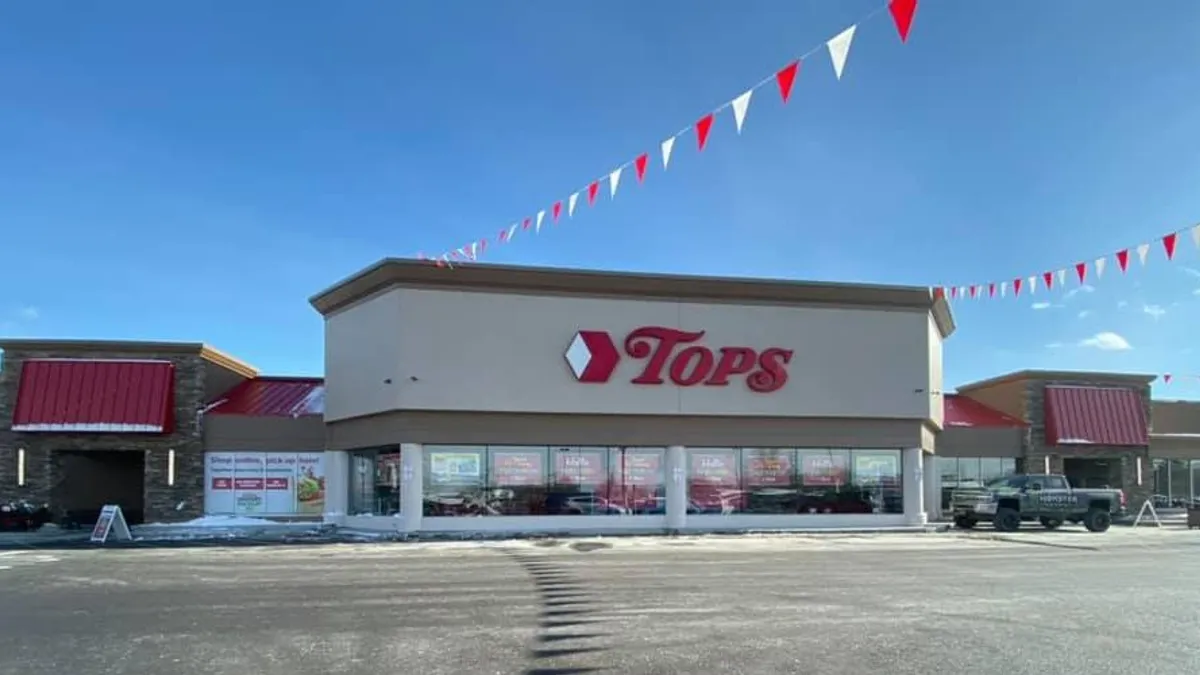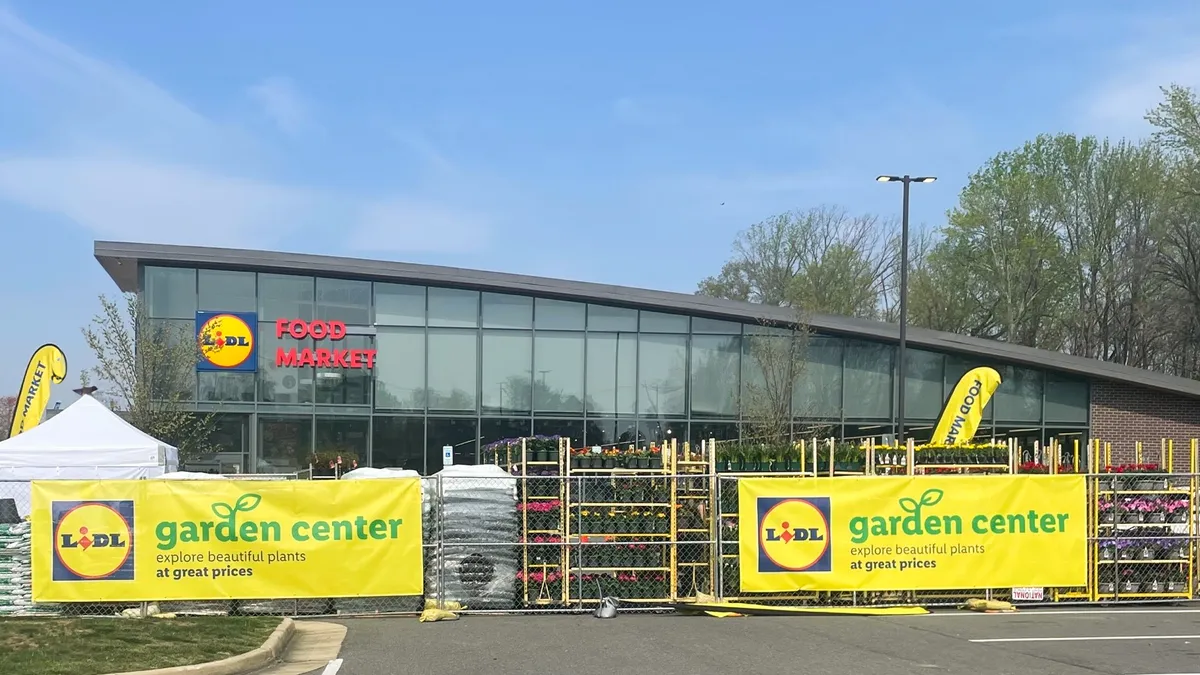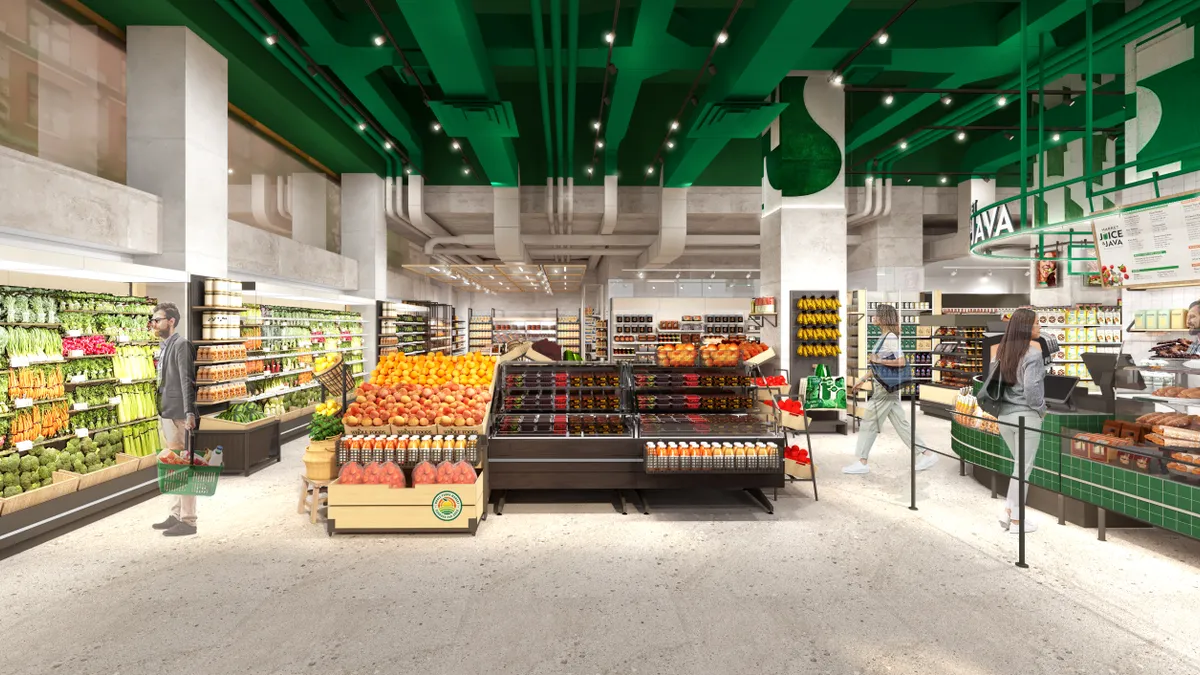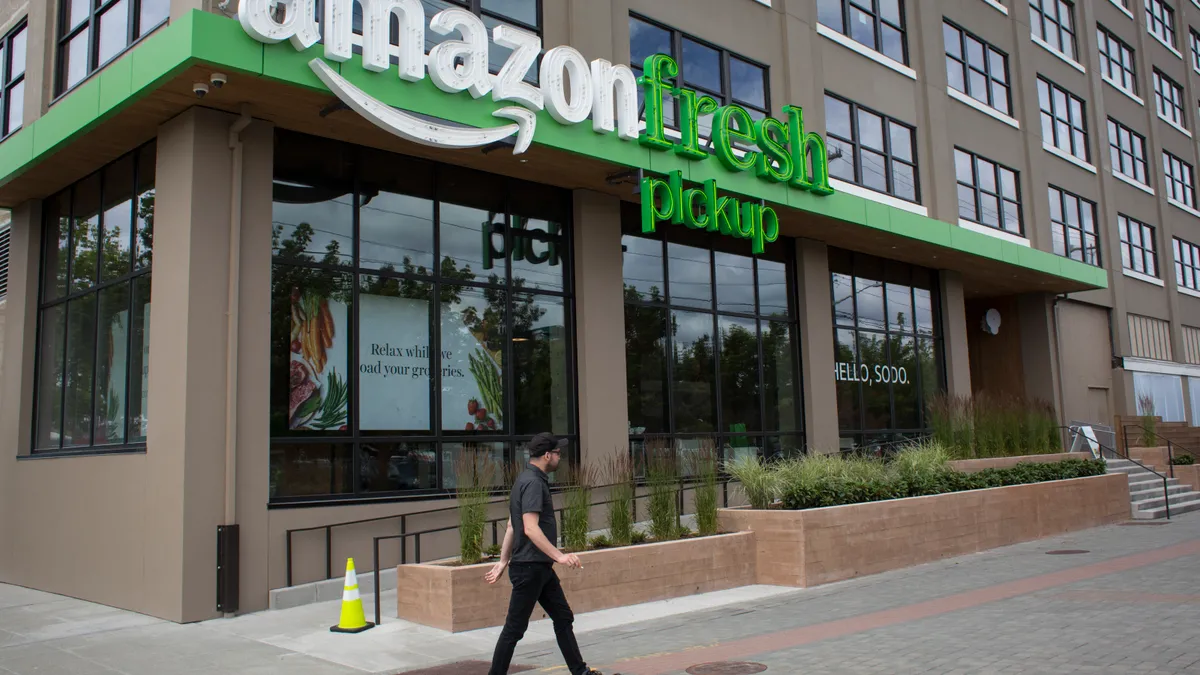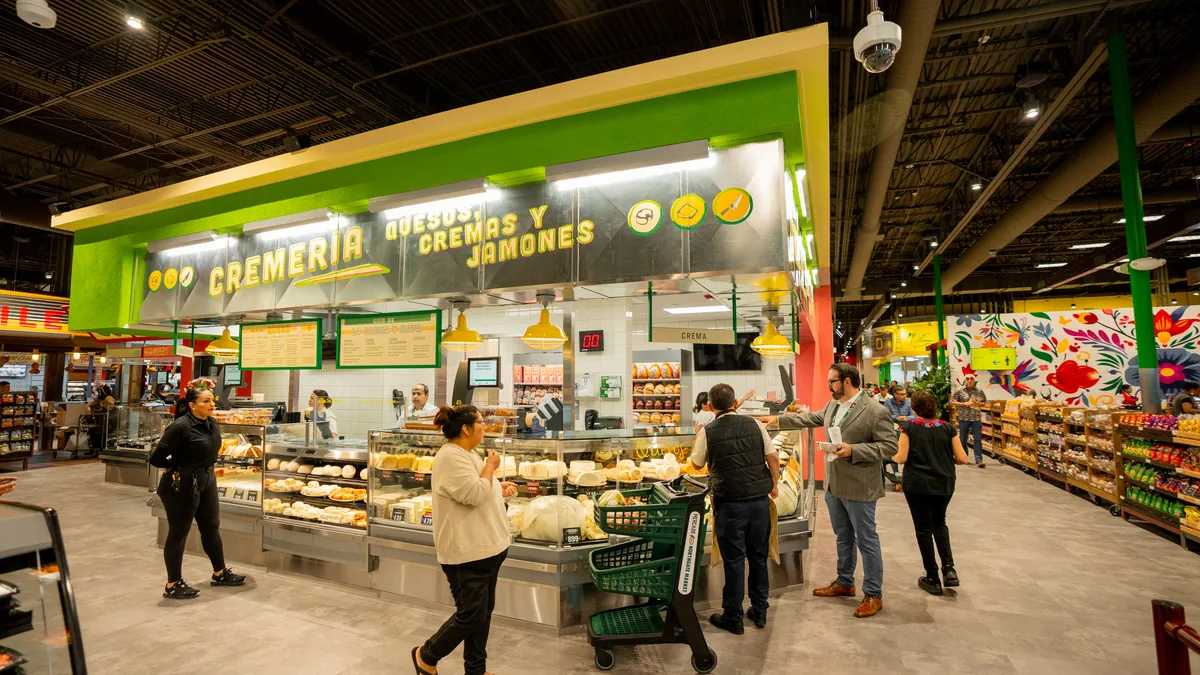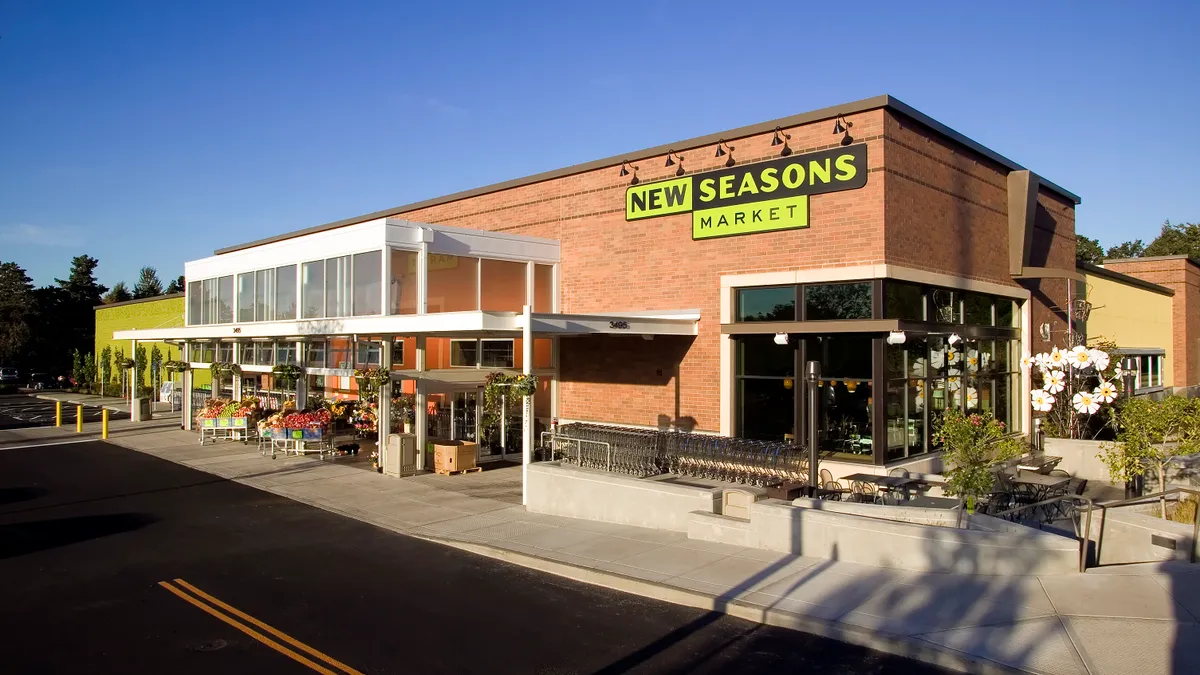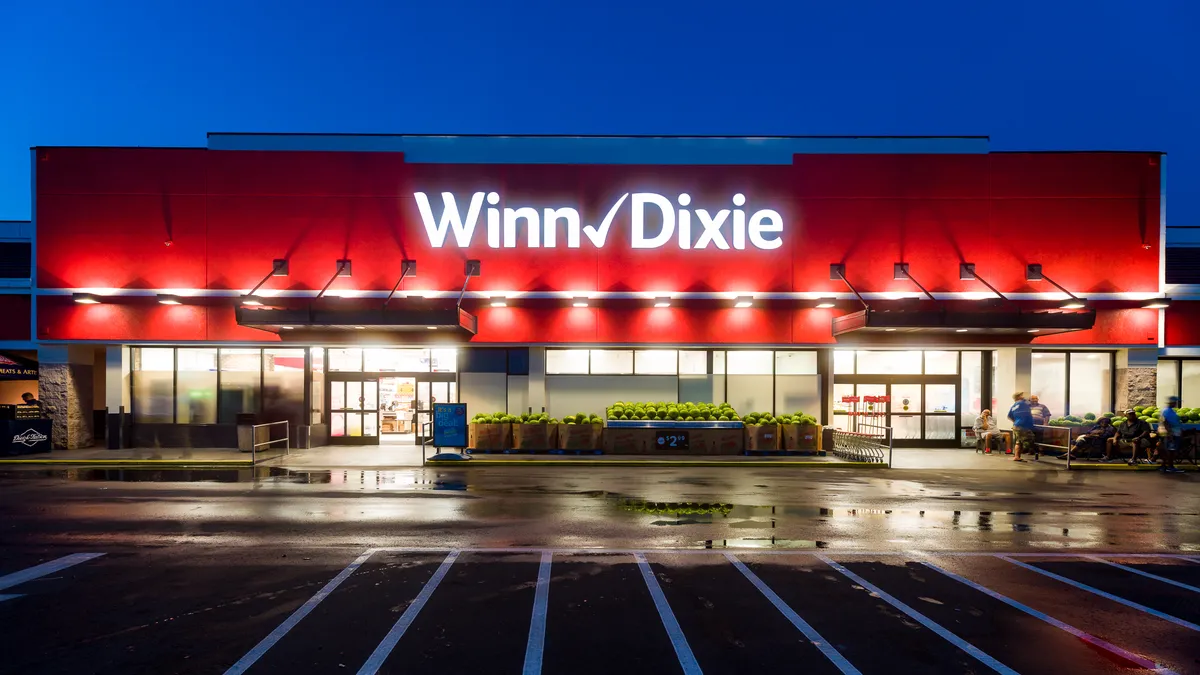Editor’s Note: This “A Balancing Act” story is the 19th in a series for Food Dive, where experts examine trends uncovered in earnings reports and discuss strategies that impact the balance sheet. Previous articles in this series can be found here.
Breaking into the online grocery business has never been easy, and that prospect is even more daunting today with a collection of well-known and cash-rich players dominating the rapidly growing space.
Instacart, Shipt and Amazon are expanding their footprints nationwide, while regional players such as FreshDirect and Peapod enjoy enviable customer loyalty. Even brick-and-mortar retailers, including Kroger, Walmart and Albertsons, are quickly expanding their own e-commerce programs that offer home delivery and store pickup.
Despite the first-mover advantage these companies enjoy, a new crop of e-grocers has entered the market, hoping to make a name for themselves in an industry that’s expected to reach $100 billion in sales and comprise 20% of the grocery space by 2025. Some startups offer nationwide distribution. Other firms look to a particular city or region. They’re focused mainly on competitively priced specialty goods, and all share a common goal: One-upping their established competitors on operational efficiency and assortment.
“We’ve been so incredibly focused on, how do we get these orders picked and packed and efficiently out to homes?” Bentley Hall, CEO of Good Eggs, which delivers groceries in the San Francisco market, told Food Dive.
Low prices, limited assortment
E-grocery startups can’t match Amazon or Walmart for sheer breadth of inventory. But as discounters Aldi and Lidl have shown, a limited assortment of high-quality, lesser-known brands also can be a very effective tactic.
Brandless entered the field in July, offering consumers a limited collection of private label products at a single $3 price point. This includes everything from grocery items such as granola and peanut butter to home basics like hand soap and kitchen tongs.
The company, which offers free shipping in return for a $36 annual membership fee, says it achieves its low price points by working directly with suppliers, and by cutting out the “brand tax” so many manufacturers pass along to customers through traditional marketing and operations. Even Brandless' product designs promote its generic message, with each package sporting two or three colors on a rectangular label listing the ingredients and things the item is missing, such as artificial colors or GMOs.
“It’s an inefficient process,” Brandless co-founder Ido Leffler said of the sourcing and marketing costs brands traditionally incur on their way to retail shelves in an interview with The Wall Street Journal. “We are re-appropriating those dollars back to the consumers.”
“We thought, 'Okay, what is the best version of these products we can make?' We didn’t want to have five different brands of mayo.”

Chai Mishra
CEO, Movebutter
Movebutter, which also launched this summer, offers a similar selection of low prices and a limited assortment of specialty items. The startup, which ran a successful test in the San Francisco market prior to its nationwide launch, carries just one private label selection in each category. It also claims its products are 25% cheaper than those found in leading organic supermarkets.
This approach grew from a key insight CEO Chai Mishra and his team gained while studying grocers around the country. In most stores, they found 80% of sales were coming from just 20% of the products. Movebutter decided to hone in on that 20%, and finalized its lineup around items that generated high interest and repeat sales. Then, the team sought out the best suppliers they could find to develop a limited selection for each category.
“We thought, 'Okay, what is the best version of these products we can make?' ” Mishra told Food Dive. “We didn’t want to have five different brands of mayo.”
History of failed startups
Specialty grocers have been selling online for some time, but this new crop of players hope to become regular, week in, week out shopping destinations rather than just a place to buy pricey chocolate and snacks on an irregular basis.
But can these smaller operations stand up to the low prices and name recognition of Amazon and Jet.com, which recently came out with its own private label grocery line, Uniquely J? And can they sell big enough orders, and with enough frequency, to overcome the economic headwinds of procurement and delivery?
Certainly, the history of online grocery is littered with failed startups, including early pioneers like HomeGrocer and WebVan. The one outfit that has stood the test of time, Peapod, arguably did so because it was acquired by grocery giant Ahold in 2001.
According to Bill Bishop, a longtime grocery consultant and chief architect with Brick Meets Click, newcomers to e-grocery are notorious for spending too much to market and grow their business before they've solidified their operations. The risk of doing so these days, with so many well-known competitors, is particularly high.
Gunnar Lovelace, founder and co-CEO of Thrive Market, which offers a curated selection of 5,000 specialty grocery products, said his company isn't trying to out-Amazon Amazon. He says the company is focused on performing well in its niche.
“We’ve always known there will be several multi-billion dollar players that do some version of what we do,” Lovelace told Food Dive. “Even if Amazon captures 40% to 50% of grocery, which would take a massive multiyear process since Whole Foods only controls 2% of grocery right now, we only need to get 1% or 2% of the market and we’re doing $10 billion per year.”
Thrive Market members pay an annual fee of $60, and in return get access to natural and organic products priced below conventional alternatives. Among the savings the site advertises are Blue Diamond Nut-Thins crackers that retail for more than a dollar below Wheat Thins. It also offers Earth Friendly window cleaner that sells for $2.95 compared to $3.99 for a bottle of Windex.
Similar to its startup competitors, Thrive is focusing on private label. During the past year, the company rolled out 150 of its own products, and it plans to roll out twice as many during the next twelve months. By the end of this year, private label will comprise 20% of Thrive’s overall sales, Lovelace estimated. Within the next three years, he estimated that figure will be closer to half.
Fresh and local
Another way startups are carving out a niche in the crowded e-grocery space is by taking the farmer’s market model online. With fresh, local products popular with consumers, companies such as San Francisco’s Good Eggs and Los Angeles-based Milk and Eggs are partnering with local growers and manufacturers to offer farm-fresh milk, eggs and grocery products, in some cases shipped out the same day.
Founded in 2011, Good Eggs quickly expanded beyond its home base to include operations in Los Angeles, New Orleans and New York. However, the company grew too quickly before it had honed its operational model, according to reports, and found itself rapidly losing cash.
After hiring Hall, a veteran executive with CPG experience at Plum Organics and Johnson & Johnson, Good Eggs made the decision to retrench its business, focusing on the population-dense San Francisco market. Now, Hall said the company is working to grow its customers’ baskets with an ever-widening assortment of products. In addition to its produce, 90% of which comes from farms 250 miles away or less, Good Eggs recently introduced alcohol and meal kits to its delivery lineup. Last year, it launched same-day delivery.
“We’ve shifted from what was an occasional grocery store to a primary grocery store for most of our customers,” Hall said.
“We’ve always known there will be several multi-billion dollar players that do some version of what we do. ... We only need to get 1% or 2% of the market and we’re doing $10 billion per year.”

Gunnar Lovelace
Founder and co-CEO, Thrive Market
California, with its preponderance of farms, technology centers and venture capital firms, has become the epicenter of the e-commerce grocery startup world. Farmstead, which launched this summer, and like many of its competitors also is based in San Francisco, offers same-day delivery of locally sourced foods. What sets it apart is its use of artificial intelligence to precisely source products.
Using proprietary machine-learning software, Farmstead can predict a customer’s habits after one order, and will source accordingly from local suppliers. In addition to improving supply accuracy, the approach cuts down on food waste. The company also utilizes a series of small warehouses rather than one large facility to fill orders while mapping out eco-friendly routes to get deliveries to customers quickly and efficiently.
Los Angeles based Milk and Eggs sells fresh produce sourced directly from area farms along with an assortment of specialty goods that range in price from value to gourmet. Eggs, for instance, can be purchased for as little as $0.99 per dozen or as much as $6.99 for Vital Farms' “pasture raised alfresco” eggs.
Not trying to be Amazon
Like Gunnarson, Hall doesn’t believe Amazon’s incursion into the grocery industry through its $13.7 billion acquisition of Whole Foods poses a threat to his business. If anything, it raises awareness of online grocery among consumers. Given what many consider the increasingly mainstream drift of Whole Foods, punctuated by reports that it will focus more of its buying efforts out of its Austin, Texas headquarters, Hall believes Good Eggs and other small-scale e-grocers offer a nice contrast for value-focused shoppers.
As for the brick-and-mortar grocers that offer order fulfillment through Instacart, Shipt and other third-party services, Hall said that model can be very inefficient because grocery stores aren’t built for quick picking and packing of orders. Good Eggs, along with other pure-play online grocers utilize warehouses optimized for order fulfillment.
“If you are built to efficiently pack orders for home delivery, you don’t do it in an existing brick and mortar location with an Instacart employee,” said Hall.
Still, the economics of home delivery in a low-margin industry can be immensely challenging for startups operating on limited budgets. Bishop said many upstarts trying to replicate the success of FreshDirect and Peapod have floundered on delivery, which is particularly expensive and difficult to optimize.
“I think it’s a steep hill to climb,” Bishop told Food Dive. “The demand is there, and it’s tempting to try and satisfy it. The challenge is the economics.”
Hall noted that delivery is a major challenge. The key is building large basket sizes and delivering to high-density markets, both of which Good Eggs is currently doing, he noted. Hall declined to say whether his company is profitable, though he said the current basket size is "well over $100."
As far as expansion plans go, Good Eggs wants to take a conservative approach after spreading itself too thin a few years back. In 2018, the company plans to "replicate the model in a core West Coast market," he said.
"To be Amazon proof, we’re not trying to be everything to everybody like they are," he said. "We want to be everything to somebody somewhere.”
The "A Balancing Act" series is brought to you by BMO Harris Bank, a leader in commercial banking. To learn more about their Food & Beverage expertise, visit their website here. BMO Harris Bank has no influence over Food Dive's coverage.



